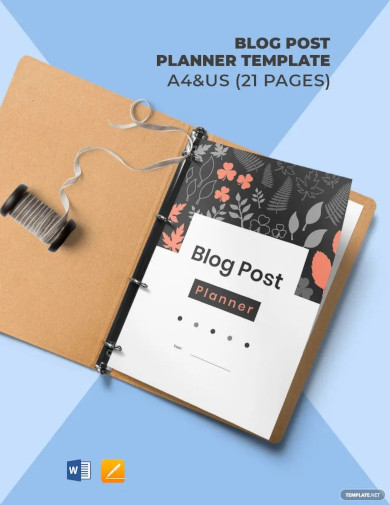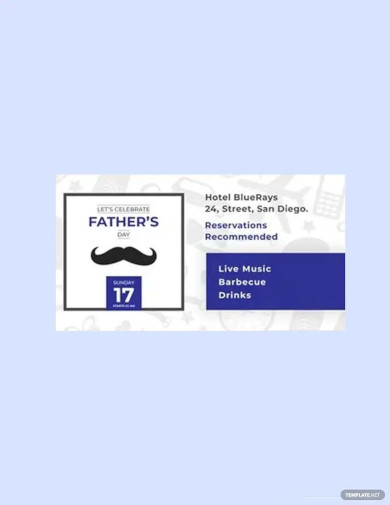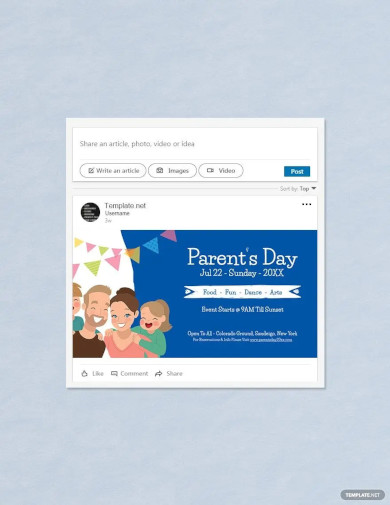23+ Blog Post Examples to Download
Blogging is an excellent way to share your thoughts, knowledge, and experiences with the world. A blog post is a piece of content that is published on a blog and can cover a wide range of topics, from food to travel to personal development. In this article, we’ll define what a blog post is, provide a step-by-step guide on how to write one, answer some common FAQs, and provide examples of different types of blog posts.
Blog Post Planner Template
Vacation Travel Blog Post Template
Father’s Day LinkedIn Blog Post Template
Parent’s Day LinkedIn Blog Post Template
Travel Business Blog Post Template
Dynamic Blog Post Example
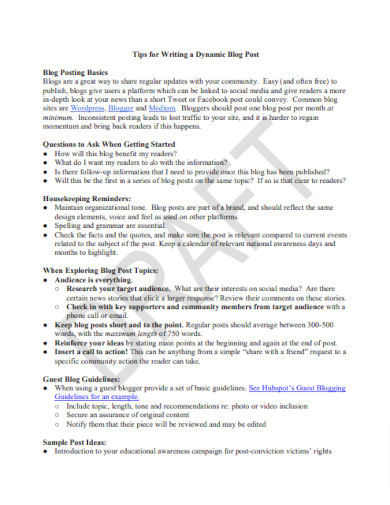
law.lclark.edu
Simple Blog Post Template
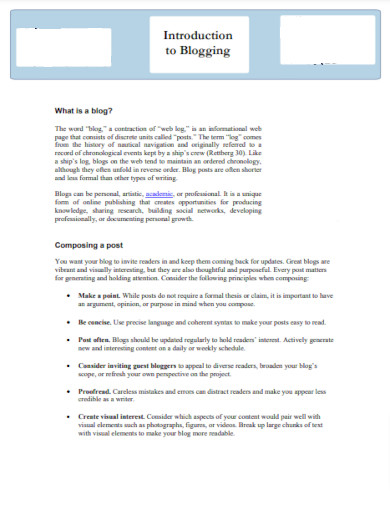
twp.duke.edu
Blog Post Writing Checklist
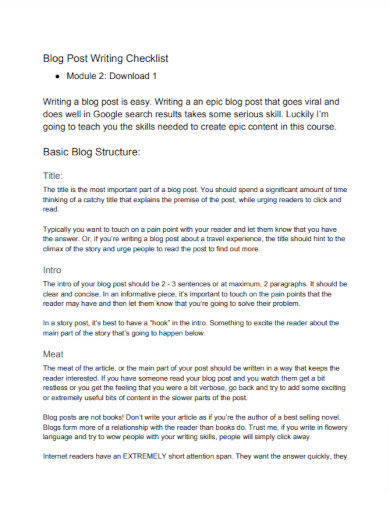
goatsontheroad.com
Blog Post Features Example
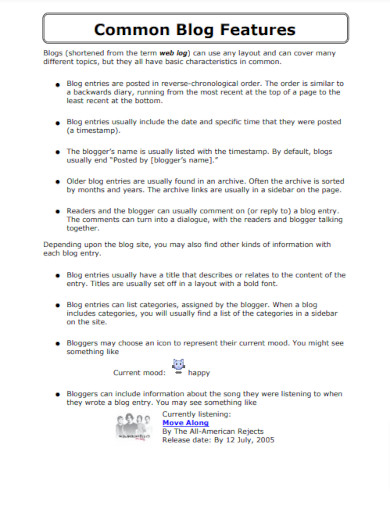
readwritethink.org
Anatomy of a Blog Post
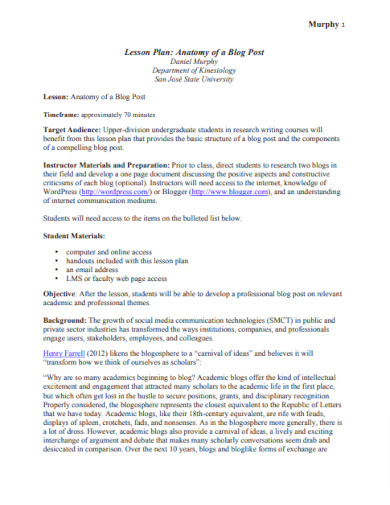
sjsu.edu
Engaging Blog Post
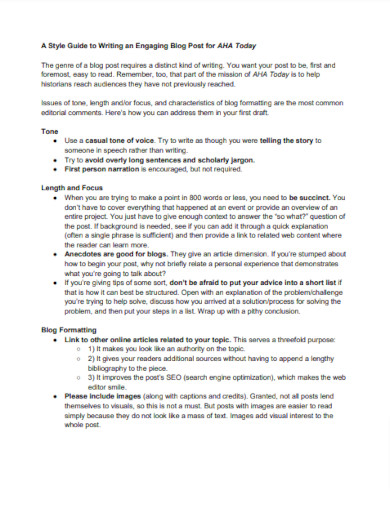
history.unm.edu
Blog Post Structure Example
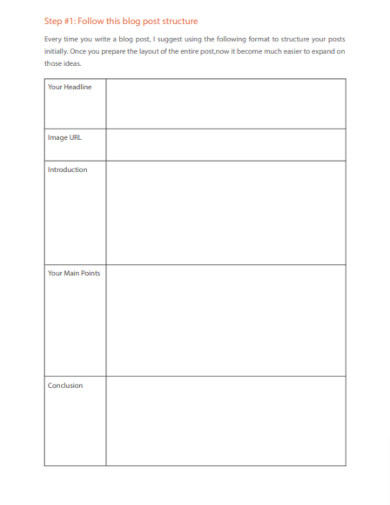
neilpatel.com
Sample Blog Post Example
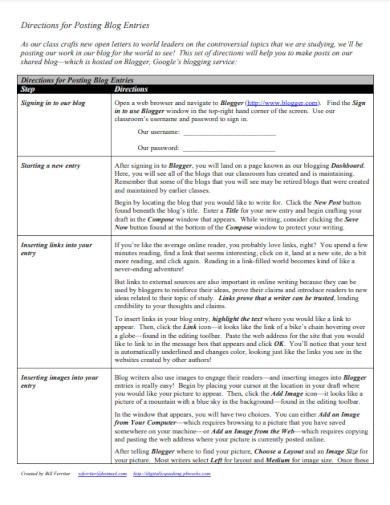
digitallyspeaking.pbworks.com
Blog Post Web Application

Academic Blog Post Example
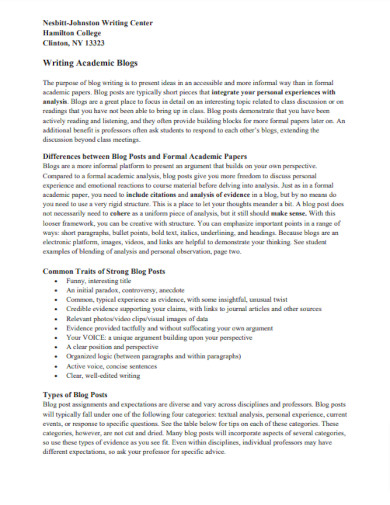
hamilton.edu
Blog Post Recipe Example
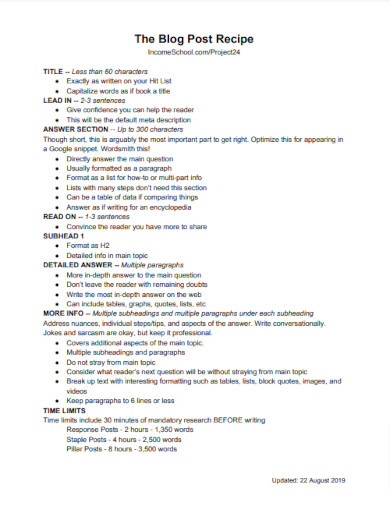
incomeschool.com
Mental Health Blog Post
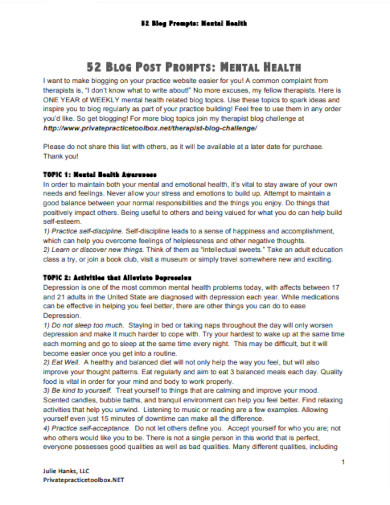
static1.squarespace.com
Personal Blog Post Example
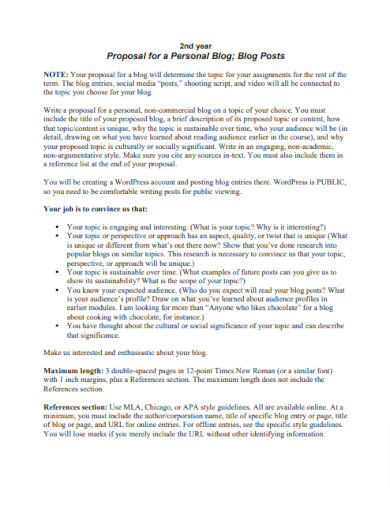
yorkspace.library.yorku.ca
Modern Blog Post Example
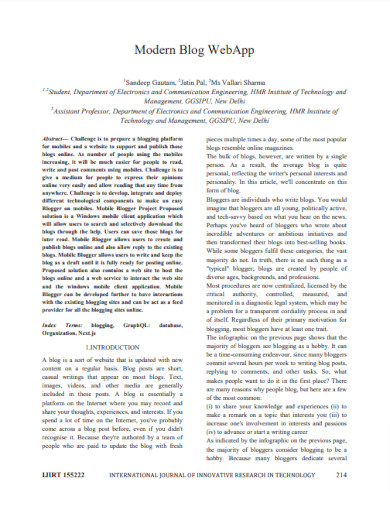
ijirt.org
Basic Blog Post Example

oracle.com
Journal Article Blog Post
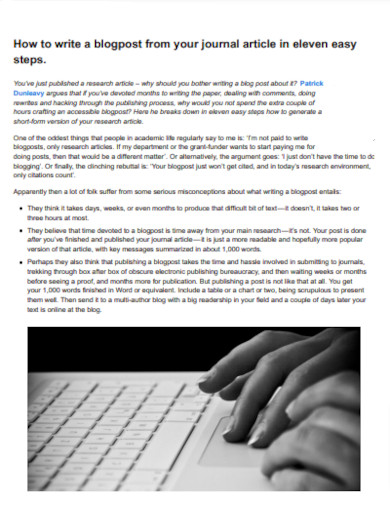
eprints.lse.ac.uk/
Editable Blog Post Example
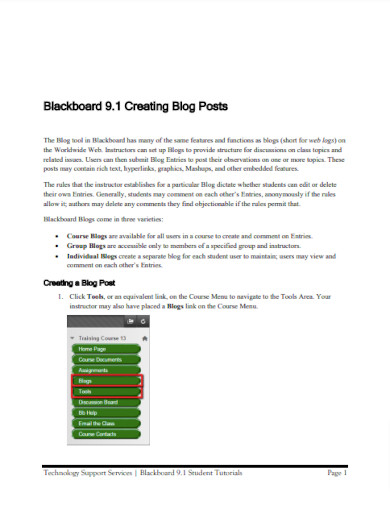
stthom.edu
Printable Blog Post Example
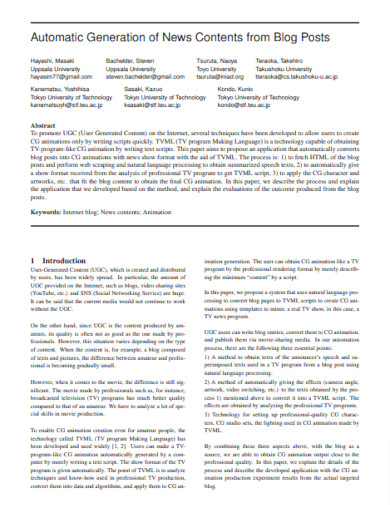
diva-portal.org
Standard Blog Post Example
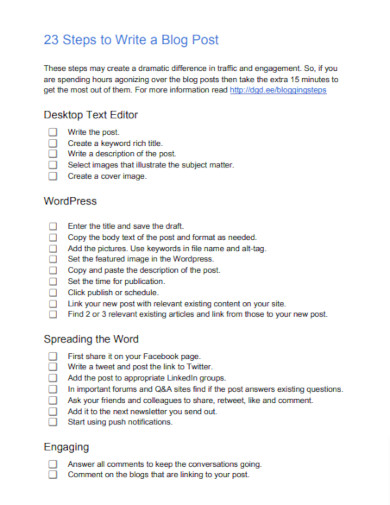
dreamgrow.com
What is a Blog Post?
A blog post is an article or piece of content that is published on a blog. It can be written in a variety of styles and formats and can cover any topic imaginable. A blog is a website that features regularly updated content, and blog posts are the primary form of content on a blog.
How to Write a Blog Post
Blogging has become a popular way for individuals and businesses to share their ideas, expertise, and stories with a global audience. A well-written blog post can be a powerful tool for building your brand, engaging with your readers, and establishing your credibility in your field. However, writing a blog post can be a daunting task, especially if you’re new to blogging or unsure of where to start. In this guide, we’ll provide you with a step-by-step process for writing a blog post that will capture your reader’s attention, provide value, and help you achieve your blogging goals.
Step 1: Choose a topic
Select a topic that you are passionate about and that will engage your audience.
Step 2: Research
Conduct thorough research on your topic to ensure that your blog post is informative and accurate.
Step 3: Create a simple subject
Your simple subject should be a one-sentence summary of what your blog post is about.
Step 4: Create a text structure
Choose a text structure that works best for your topic, such as chronological, problem-solution, or listicle.
Step 5: Craft an introduction paragraph
Your introduction paragraph should grab your reader’s attention and provide a brief overview of what your blog post is about.
Step 6: Write the body
This is where you provide the bulk of your information and insights on the topic.
Step 7: Craft a conclusion paragraph
Your conclusion paragraph should summarize your main points and leave your reader with a call to action or a thought-provoking question.
Step 8: Edit and proofread
Review your blog post for any errors in grammar, spelling, or punctuation.
FAQs
How long should a blog post be?
There is no set length for a blog post, but most posts range from 500 to 2,000 words.
How often should I publish a blog post?
It depends on your goals and availability, but most bloggers publish once a week or more.
How do I promote my blog post?
Share your blog post on social media, participate in blogging communities, and collaborate with other bloggers in your niche.
Writing a blog post may seem overwhelming at first, but by following these steps, you can create engaging and informative content that will attract and retain readers. Whether you’re starting a blog from scratch or looking to improve your writing skills, incorporating these tips and techniques will help you create blog posts that are both enjoyable and effective. Check out examples of food blogging, journal writing, and other types of blog posts to inspire your own writing.



